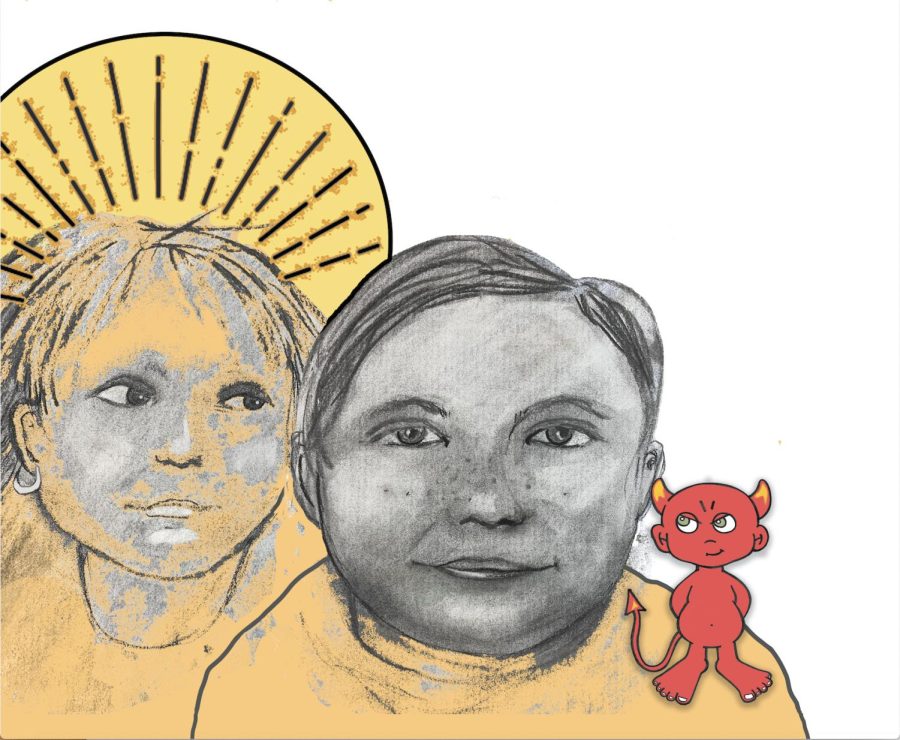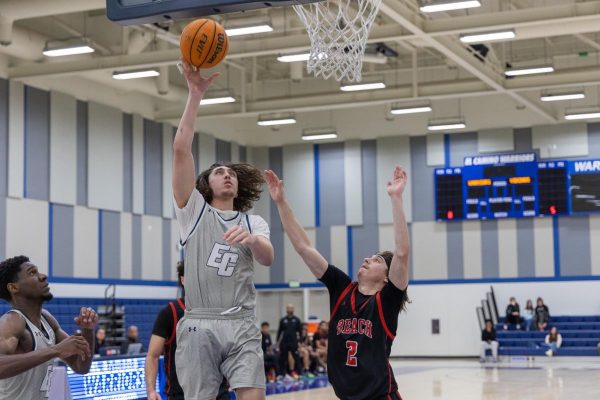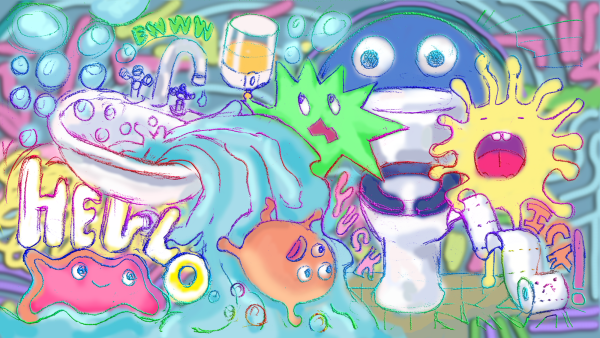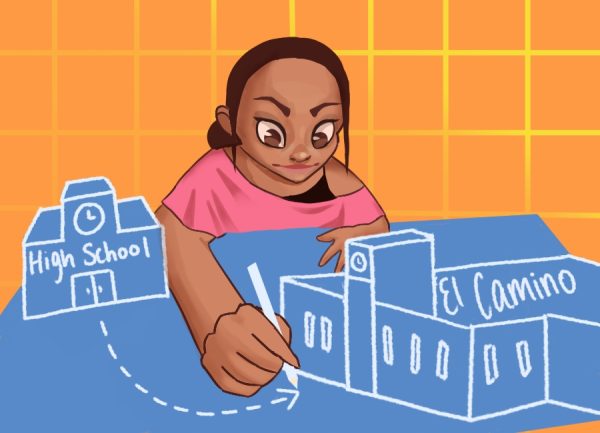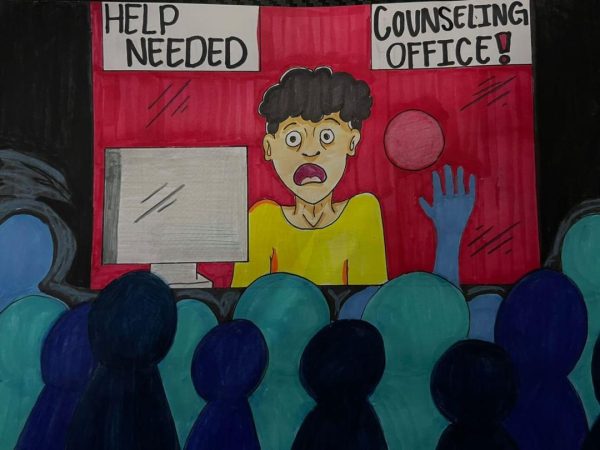How I messed up my mom’s memorial: The conversations, skills and wisdom I miss now that she’s gone
My mom died 11 years ago. I miss her all day, every day.
When she died, I had only one important job at the memorial her friends organized. I needed to speak about what my mom meant to me and so many others. I had written down what I wanted to say. But, someone unexpected showed up, and in my anger and confusion, I said things to expose the hurt they caused my mom.
I spoke of infidelity and cruelty, of betrayal and loss. I never mentioned names, so I left people confused about who did what to who.
I sounded crazy.
Since then, not a single day has gone by when I haven’t regretted what I said at my mom’s memorial and so much more about my relationship with her.
I let her down, and also let down the friends who loved her so much.
This is what I wish I had said to the people who gathered to honor her.
My mom never said how to be a good person. We didn’t have many long conversations.
She grew up in North Dakota. I grew up in California. She was country. I am city. As a little girl, she wore dresses and a bow in her hair, and was always shiny and clean. I wore Sears husky jeans and T-shirts and was always sticky and muddy. She worked as a teenager picking strawberries in Minnesota. I worked as a teenager doing urine testing for the Los Angeles County Probation Department. I saw her as old-fashioned. She saw me as rebellious.
She was uncomfortable discussing the topics most people crave talking about – sex and politics, and conflict and pain. She avoided being embarrassed.
But in her actions, she showed how to be a good person.
Here are her lessons:
1. Be a good friend.
A few days after my mom’s death, I opened a fortune cookie and the paper inside said, “To have friends, first be one.” It felt like the perfect summary of my mom’s life.
She remembered every important day, sent birthday cards, called to check in and asked about children and grandchildren by name.
She organized weekly card games. She shopped for groceries and did laundry for friends who were sick.
She cooked beautiful, feel-good food to spoil her friends like pot roast with carrots and baby potatoes or chicken and dumplings on cold and rainy days. Her friends sat down at the table with fresh cut flowers and their name written carefully on a card at the top of their plate.
My mom made her friends feel cherished and important. And they did the same for her.
2. Share what you have.
My mom believed that your home – no matter how crowded or tiny, on the street, in a car or under a roof, with plenty of food or hardly nothing at all – can always shelter and feed one more person.
She took people in who lost a job or their place to stay. She organized neighbors to take daily meals to families who were too devastated by death or loss to cook. People went to her for ideas and advice.
When children were cutting their knees and splitting their heads open on a dirt baseball field covered in rocks, she organized moms and kids to clear the field by hand.
She looked out for people.
3. Work hard.
My mom was always the one who was consistent and reliable. She kept the lights on and food in the fridge. She came home from long days at work and cooked and cleaned and did laundry until late at night.
When my dad left, she worked two and sometimes three jobs. No job was too hard. She answered phones for a sheetrock contractor. She worked at a hardware store. She set type for a printer. She sold concessions at Dodger Stadium, standing for eight hours on hard concrete.
She passed the value of hard work on to me.
She never forced me to work. She just linked it to goals that I cared about. She made me work to earn a toy or a dollar. I sold more raffle tickets every year than anyone else in community baseball because I wanted the prize. My mom wouldn’t help me sell.
She helped me start babysitting at age 9 and encouraged me to wash dishes or help clean whenever I was at other people’s homes.
She never complained when I left before dawn and returned home late at night to cover school, sports and after-school and summer jobs. As a teenager, I worked in a cannery skimming scum off the top of huge vats of jam in 115-degree heat.
I planted pumpkins in the blazing summer sun and sold Christmas trees in weather so cold that my fingers – raw from sap and pierced by pine needles – bled.
Many would say that she allowed me to work too many hours. But I learned humility and how to push through.
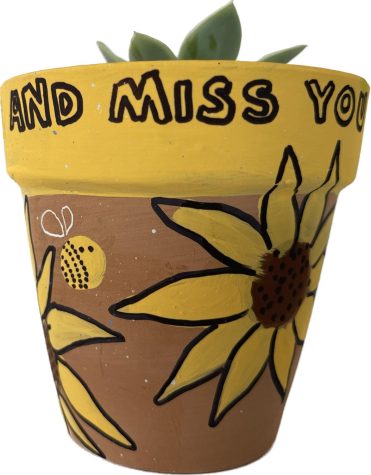
4. There isn’t anything anyone needs that can’t be made.
My mom stayed up all night creating rag dolls with detailed, multi-colored clothes and embroidered faces for her friends’ children.
I begged for Twinkies and store-bought Halloween costumes. But my mom always sent me to school with fresh-baked cookies. While others were superheroes and witches and serial killers, I was an itchy burlap scarecrow with straw sticking out from my sleeves and ankles and a stuffed crow perched on my shoulder. For a school play, she created cloth masks that covered our whole heads, each kid a different character from Winnie-the-Pooh.
When my All-Star softball team had no money for uniforms, my mom and other women made us shirts and sewed sequins onto our caps that glittered in the sun. We were both laughed at and slaughtered by a team from Downey where they had full uniforms, cleats, paid umpires and professional fields with lights and electronic scoreboards.
I wish I had studied all the talents my mom had, arts passed down from generation to generation until they ended with me.
5. Leave a better world for the next generation.
My mom was from a time, a place and in relationships where women were silenced, bullied and coerced, told how to think, even told how to vote.
But in unfriendly, male-dominated work environments, she carved out safe places for women. She helped them to move up at work and out to better possibilities. She encouraged them to start businesses and take risks. She warned them about sexual harassment, and advocated for them when they were mistreated. I know this, because I saw some of it, and because the women she worked with told me.
She was part of that bridge generation that made the lives of women and girls so much better. She never marched for women’s rights or drew a protest sign.
But she was part of the revolution that demanded an end to doing twice as much work for half the salary, an end to hands up your skirt and down your shirt, an end to working a full day and coming home exhausted to put in a second shift cooking, cleaning and caring for children with no help from your male partner.
She didn’t win those rights for herself. But she and thousands of other women planted seeds of resistance in their children.
My mom also told me to “fight my own battles.” Even when I was in a conflict or I felt a teacher was unfair, she almost never stepped in to defend me. This taught me how to stand up against injustice.
6. Let your children go
Parents often want to protect their children, and hold them close forever. My mom was no different. But she showed that a parent’s job is to let children go, pick them up when they fall and then let them go again; to take them to the edge of a cliff and push them to fly.
I am sure that I scared my mom a lot.
As a little kid, I ran around the neighborhood until the street lights came on. I concocted elaborate runaway plans, packed my wagon with food and supplies, and took off with my dog until long after dark when cold and hunger called me home.
I broke my collarbone playing soccer in pouring rain, broke an eye vessel playing catcher when I got hit with a baseball bat to the face, got kicked by steel cleats that split a muscle sheath in my leg causing a hernia I still have, an injury the doctor said he’d never seen. I broke my cousin’s nose in a boxing match and got blood all over the room.
By middle school, I traveled everywhere alone on the bus when the L.A. Metropolitan Transit Authority (MTA) was known as the Rapid Transit District (RTD) or what we all called “Rough, Tough and Dirty.”
I drove 3,000 miles across the country by myself three times to move to and then come back from the East Coast.
My mom sometimes looked worried or angry.
She suggested that I stay closer to home or pay more attention to safety.
It would have been natural for her to be over-protective, especially since she had a son who died before I was born as well as several miscarriages.
But she never pushed me to change.
After she died, one of her friends said that my mom had “crap luck.”
In many ways, her life was hard.
She was badly burned as a child and lost months of her childhood. She moved many states away from her family for better opportunities.
Maybe because of so many miscarriages and the death of a son, because of their own tough childhoods, or for other reasons I never knew, the relationship she had with my father was lacking in love or affection. He was controlling and critical, and I saw her confidence melt. I had a hard relationship with him too, and I think that added to her stress. Silent tension that soaked the atmosphere gave way to eruptions and days when people disappeared. When he left, I was glad, but my mom was devastated.
At times, I think she felt crushed by life.
She drank too much to escape sadness, and that made her sadder. Over time, she regretted ambitions never reached and dreams abandoned.
In the end, my mom endured a vicious five-year fight with cancer that took her one piece at a time – a piece of colon, a piece of liver. When it spread to her lungs and brain, it took her thoughts and speech.
But, I think she had a beautiful life, especially because of the love she got from, and gave to, her friends.
I wish I had known how much I would miss her.
I should have held on tighter, and filled in the quiet spaces with questions. I should have learned more, urged her to pass on all her precious skills. I should have forgiven more and shown more patience.
Thinking back to that day at her memorial, this is what I wish I had said.
Had I appreciated her more, I would be more like her. And that would be better for everyone.
Editor’s Notes:
- Headline was updated on Tuesday, June 13.
- Featured photo was enlarged and story was updated on Wednesday, June 14.



